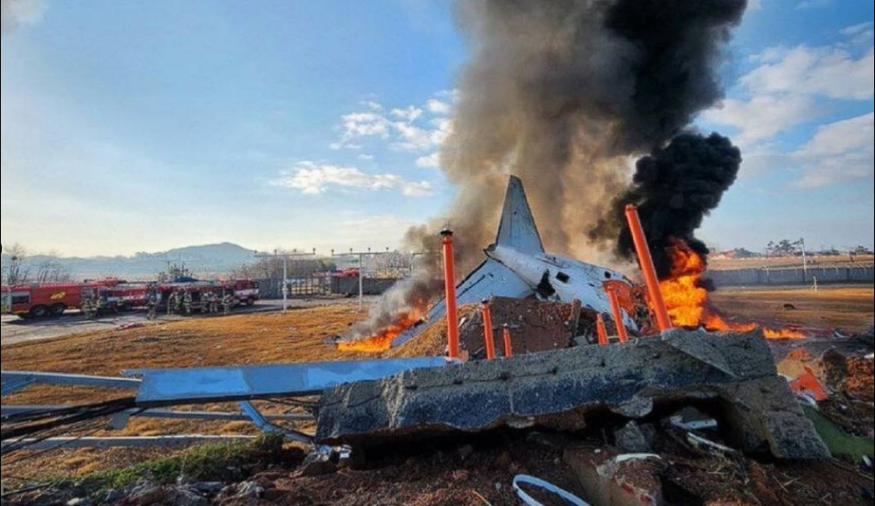
Jeju Air has grounded another aircraft after a landing gear issue was detected during a flight on Monday, raising concerns about the same mechanical defect that contributed to a deadly crash the day before.
This incident has led to questions about the safety of Jeju Air's fleet, particularly the Boeing 737-800 model involved in both events.
Jeju Air Flight Returns to Gimpo After Landing Gear Issue, Linked to Fatal Muan Crash
On Monday, Jeju Air Flight 7C101 took off from Gimpo International Airport with 161 passengers on board, bound for Jeju. However, shortly after takeoff, the crew detected a problem with the landing gear, Yonhap News said.
The airline promptly informed passengers of the mechanical issue and made the decision to return to Gimpo. The flight safely landed at 7:25 a.m., and no injuries were reported. Jeju Air plans to continue operations using a replacement aircraft.
The problem with the landing gear is significant because it is a critical part of the aircraft, directly affecting the safety of takeoffs, landings, and emergency landings.
A similar issue with the landing gear is believed to have played a role in Sunday's tragic crash of a Jeju Air flight in Muan, South Korea. The crash, which killed 179 people, occurred after the landing gear reportedly failed to function properly, leading to the aircraft's devastating crash-landing.
Both the grounded flight and the crash involved the same model of aircraft: the Boeing 737-800. Jeju Air operates 39 of these planes, which make up most of its fleet. The cause of the Muan crash is still under investigation, with authorities considering factors like poor weather and a potential bird strike.
Tracking data from the doomed flight revealed it had difficulty approaching the runway, and videos from the scene showed the plane crashing without its landing gear deployed. The aircraft skidded several hundred yards before slamming into a wall, causing a massive explosion.
Authorities Confirm Two Survivors in Muan Crash, Safety Concerns Grow Over 737-800
Authorities have confirmed that only two survivors were found, both believed to be flight crew members seated in the rear of the plane.
In the aftermath, more than 140 bodies were recovered, and a special disaster zone was declared in Muan by South Korea's Acting President, Choi Sang-mok, to provide support to the victims and their families.
According to Mirror, the incident at Muan has led to heightened concerns over the safety of the 737-800 model and the possibility of mechanical defects across the airline's fleet.
Jeju Air, meanwhile, has pledged to address the issue and will continue to operate flights with replacement aircraft as it investigates the cause of the landing gear failure.
As the investigation continues, authorities are carefully examining all possible causes, including mechanical failure and environmental factors. The crash has prompted calls for increased safety measures and more rigorous checks to prevent such disasters from occurring in the future.
















